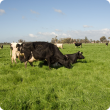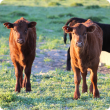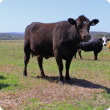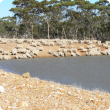Services
Search in Services
Filter services by topic
- (-) Remove Livestock management filter Livestock management
- Livestock species (11) Apply Livestock species filter
- Livestock & animals (11) Apply Livestock & animals filter
- (-) Remove Beef cattle filter Beef cattle
- Pests, weeds & diseases (8) Apply Pests, weeds & diseases filter
- Livestock health & diseases (8) Apply Livestock health & diseases filter
- Livestock disease surveillance (8) Apply Livestock disease surveillance filter
- Diseases (8) Apply Diseases filter
- Dairy cattle (6) Apply Dairy cattle filter
- Biosecurity (6) Apply Biosecurity filter
- Biosecurity & quarantine (6) Apply Biosecurity & quarantine filter
- Livestock biosecurity (5) Apply Livestock biosecurity filter
- Sheep (4) Apply Sheep filter
- Management & reproduction (4) Apply Management & reproduction filter
- Feeding & nutrition (3) Apply Feeding & nutrition filter
- Pasture management (2) Apply Pasture management filter
- Pasture species (2) Apply Pasture species filter
- Pastures (2) Apply Pastures filter
- Livestock research & development (2) Apply Livestock research & development filter
- Goats (2) Apply Goats filter
- Crops (2) Apply Crops filter
- Pigs (1) Apply Pigs filter
- Horses (1) Apply Horses filter
- Irrigated crops (1) Apply Irrigated crops filter









